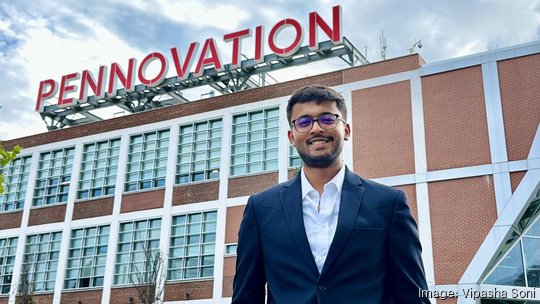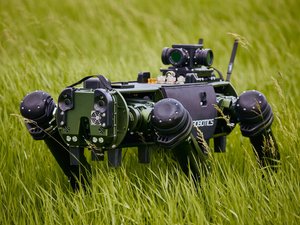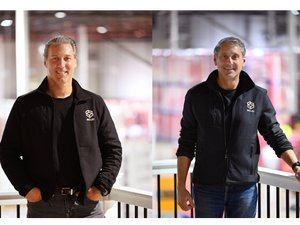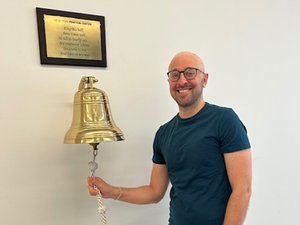
After a train derailment spilled hazardous materials in East Palestine, Ohio, last year and another killed almost 300 people in India, Tejas Agarwal decided to turn his passion for robotics into a startup focused on minimizing risks on railroads.
Just months after founding Sahay AI, Agarwal took the top prize in the Pennovation Works accelerator competition last week.
The startup's robotic device, LARR-E, attaches to the back of a train car and uses sensors to capture data and information on the infrastructure of the train tracks. Agarwal says it can effectively take the place of visual railway inspections, using technology to capture more accurate and detailed data than the human eye and aggregating it in real time on a web dashboard.
By winning the pitch competition at Pennovation Works, Sahay AI receives a $7,000 cash prize, a six-month membership to use the Grays Ferry innovation hub's space for product development, and marketing support. Sahay AI was one of 12 participating startups from a range of industries in this year's cohort of the summer accelerator, which culminated in the pitch competition.
Agarwal, who received his master's from the University of Pennsylvania, has spent much of his professional career at Pennovation Works.
He immigrated to the U.S. in 2021 from India, attended Penn Engineering, then moved on to work for the Autoware Foundation, an autonomous vehicle startup based at Pennovation Works. After the railway incidents of last year, Agarwal saw an opportunity to use what he learned at Penn and the Autoware Foundation to build a solution that could ultimately make railroads safer.
Through conversations with inspectors and engineers, Agarwal heard that the typical railroad inspections are largely conducted visually and thought there would be a way to remove the potential for human error and make the process much more efficient by automating it.
"Me being from a robotics background, I was like, 'This does not make sense, because we have GPTs and humanoid robots happening, so much technology going on, but this is something we actually do need to investigate on, this directly impacts human lives,'" Agarwal said.
He founded Sahay AI in October and began working on the fledgling company full-time in January. Agarwal and his team of three are still looking to bring their product to market and secure the startup's first contract. Agarwal expects that to happen in the next few months and plans to then test the venture capital waters to raise between $500,000 and $1 million before the end of the year.
Agarwal said he's having "active conversations" with a number of public transit agencies, including SEPTA, about a potential pilot contract. Agarwal said the LARR-E device can inspect railroads at least 10 times as fast as current human inspections. He sees room to scale not only with transit agencies in major cities, but also with private freight lines like BNSF Railway and CSX. Agarwal said he believes the technology can "significantly reduce the time and cost for these people, [while] also increasing the safety."
"This business is scalable because we have a lot of rail all around the world, a lot of rail in the U.S. — private, public," Agarwal said. "But it's important to build a case that this is something that is actually solving a problem. I feel like in the next three months I can definitely get into one of these contracts and from there it'd be a reasonable point to invest in the team."







